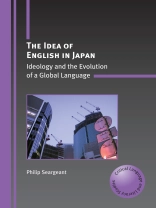This book examines the ways in which English is conceptualised as a global language in Japan, and considers how the resultant language ideologies – drawn in part from universal discourses; in part from context-specific trends in social history – inform the relationships that people in Japan have towards the language. The book analyses the specific nature of the language’s symbolic meaning in Japan, and how this meaning is expressed and negotiated in society. It also discusses how the ideologies of English that exist in Japan might have implications for the more general concept of ‘English as a global language’. To this end it considers the question of what constitutes a ‘global’ language, and how, if at all, a balance can be struck between the universal and the historically-contingent when it comes to formulating a theory of English within the world.
Table of Content
Acknowledgements
List of Figures
Chapter 1: Introduction
Chapter 2: The Concept of English as a Global Language
Chapter 3: Language Ideology and Global English
Chapter 4: English in Japan: The Current Shape of the Debate
Chapter 5: Globalisation – ‘Enriching Japanese Culture Through Contact with Other Cultures’
Chapter 6: Authenticity – ‘More English than England Itself’
Chapter 7: Aspiration – ‘Enhancing Lifestyles and Living out Dreams’
Chapter 8: The Unknown Language
Chapter 9: Rival Ideologies in Applied Linguistics
References
About the author
Philip Seargeant is a Senior Lecturer in Applied Linguistics at the Open University, UK, where he teaches and researches language and communication. He is the author of The Art of Political Storytelling (2020, Bloomsbury) and has published widely on topics ranging from World Englishes, language and social media, to language and creativity. He is a frequent contributor to publications including Wired, The New European, Prospect, The Huffington Post, The Washington Post and The Independent.












